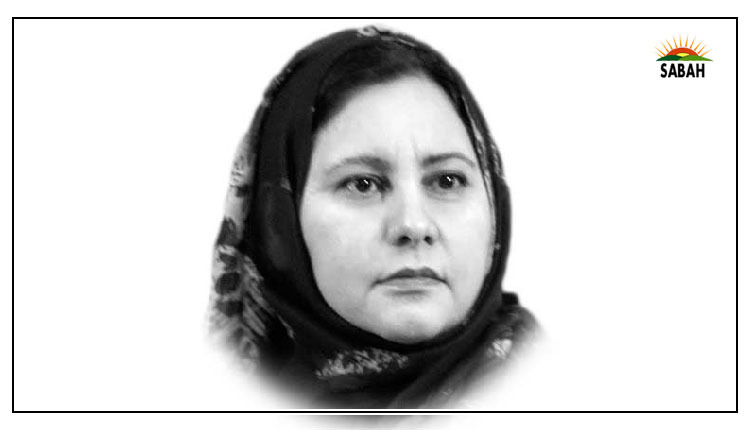Fleeing Assad leaves many unanswered questions… Aneela Shahzad
On November 27, a peace deal was struck between Lebanon and Israel. There was concern as to what would become of Gaza if Hezbollah’s arms had been tied. Ironically, the same day, Hayat Tahrir al-Sham (HTS) started its Aleppo offensive.
HTS, a militant group that had previously been part of al-Nusra, ISIS and al-Qaeda at different times, has had a stronghold in Idlib since 2017. While Iranian-backed militia wiped out ISIS from vast Syrian territories, the HTS was provided cover in Idlib under the Astana Process. This meant that though the US withdrew from Syria in 2019, it still kept some bases there. Moreover, ISIS was still there in pockets; Kurdish-led SDF and some Turkish-backed militias covered the whole north; several militias under HTS umbrella were in Idlib; and several other militias remained in Daraa, near the border with Israel and Jordan – meaning that the civil war had never ended, it had only subsided.
But there are several unanswered questions here. How does the HTS offensive connect with the Lebanon-Israel deal? How has it been that the same Hezbollah that kept punishing Israel for its Gaza War since day one had suddenly decided to go quiet? How is it that the same Iran and Russia that ensured Assad’s power throughout the Arab Spring and to this day suddenly decided to vanish from the scene? How is it that several dozen Iran-backed militias spread in Iraq and Syria just went underground, and not a single fighter jet from the three bases Syria had provided Russia lifted into air? How is it that a handful of loosely held militias, between ten and thirty thousand in strength, swayed the whole of Syria in less than ten days without facing the slightest resistance – even from the 170,000-strong Syrian Army?
True, HTS was a US asset, and Turkey had influence upon it; true that Turkey could provide direct aid to Idlib across its border. But does that mean that Turkey, just to prove its friendship with NATO, would forsake its deepening trade and strategic relations with Russia and China in the last decade. Does that mean that the same Turkey that was a part of the Astana Process along with Iran and Russia, and that ensured Western forces were driven out of Syria, and that had done the same before, in Libya in coordination with Russia – would all of a sudden allow Western interests to re-sprout in Syria? All this is beyond probable!
What is rather probable is that after the Saudi-Iran rapprochement, all the players of the Middle East and their immediate neighbours were finally able to sit together and jot a plan for the security of their region. This was the first time when the axis of resistance was bringing physical harm to Israel, and the Arabs were constantly endorsing their efforts in the diplomatic zones. There was also news of constant and frequent diplomacy between the Arabs, the Iranians and the Turks. So, instead of the possibility that each of these players was going opposite directions, it is more plausible that they were actually looking for a concerted pathway.
All these players were also looking forward to a coming Asian Century that promises progress and development in concert with platforms like BRI, BRICS, SPIEF. And for that to happen they would need peaceful, sovereign nations in the region – a region not covered with clouds of war all the time. And at long last with the end of the Saudi-Iran rivalry, this seemed possible. So, they all sat down to write a dramatic script that would ensure: the end of an era of a destabilised, militia-infested Syria; end of the Gaza War; and end of Western maneuvering in their regions.
If this assessment is correct then what actually happened was an understanding that the HTS will be allowed to sweep across the country sans-resistance, and Assad would be safely brought into Russia. And before that, there would have been an agreement with Israel that Hezbollah will retreat first, and within a defined time, Israel will also retreat from Gaza.
But if Gaza is thrown away in ashes, and the Palestinians are back-stabbed by the Ummah once again, then we would know that whatever the plan was, it was evil – and evil does not beget goodness. So without resolving Palestine, none of the Arabs, the Persians, the Russians and the Chinese will get the peace required for fulfilment of their dreams of progress.
In any case, the idea that this big drama could be single-handedly Turkey’s idea or that Turkey is secretly aligned to the US and Israel simply doesn’t add up. One must be reminded of China establishing manufacturing facilities for electric vehicles and smartphones as well as energy infrastructure in Turkey. The Turk Stream pipeline operating since 2020, which brings Russian gas to Turkey and Europe via Turkey, is also a game changer deal for Turkey. Turkey’s previous actions have constantly hinted that it cares least for NATO and wants BRICS membership.
So, only time will tell whether this been a victory for the US or Israel. But can this be a trap for the US and Israel? Perhaps yes. Because we have seen Turkey and Russia play a similar game in Libya: Russia came to the aid of Khalifa Haftar and Turkey came to the aid of the Tripoli government; and in all this new chaos, Western players found that their role had been snatched away from them in Libya.
Perhaps this analysis is too optimistic. But if things happened this way, perhaps the regional players around the Middle East would have saved the region from a long and devastating war-scenario, or perhaps they would have saved the world from a third world war.
COURTESY ![]()












